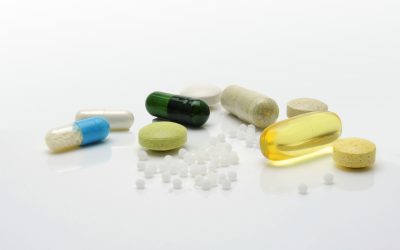Acupuncture for Infertility
Have You Considered Acupuncture for Infertility?
Acupuncture for infertility is becoming a popular natural alternative to conventional fertility treatments and a great adjunct to assisted reproductive technologies such as IVF. Acupuncture for infertility is a very gentle yet effective option for those who would like a more natural approach, or who want to increase their chances of IVF success.
How Acupuncture Can Increase Natural Fertility
Acupuncture works by balancing the flow of energy, or “Qi”, traveling through pathways in the body called “meridians”. When the flow of Qi is disrupted or out of balance, that’s when symptoms or pathologies in the body arise. The goal of acupuncture is to restore the balance and re-direct the flow of Qi, by placing very thin sterile needles at specific points on the body. The needles affect the flow of blood, nerve conduction and thousands of biochemical pathways, which can ultimately affect our hormones and general health. While acupuncture is an ancient practice, there are growing amounts of research showing that acupuncture can treat many ailments and restore the body to optimal health.
Several research studies have found that acupuncture is indeed helpful for couples who have difficulty conceiving, and can improve the chances for conception to occur naturally. Acupuncture has proven to be particularly effective in improving the success rates of Assisted Reproductive Technologies (ART) such as In-Vitro Fertilization (IVF) and Intra-Uterine-Insemination (IUI). Even the world’s leading fertility clinics routinely support the use of acupuncture as an adjunctive treatment to improve outcomes of assisted fertility treatments.
Research Supporting Acupuncture for Infertility
Below is a collection of some of the research articles on the effectiveness of acupuncture in the treatment of infertility and fertility- related conditions.
A systematic review published in 2012 looking at 23 trials for fertility, showed that “acupuncture, especially around the time of the controlled ovarian hyperstimulation, improved pregnancy outcomes in women undergoing IVF.” And “more positive effects from acupuncture in IVF can be expected if more individualized acupuncture programs are used.”
A very recent systematic review and meta-analysis revealed that acupuncture improves the clinical pregnancy rate in women receiving IVF. The results are especially promising for electrical acupuncture (Qian et al., 2017). Acupuncture during controlled ovarian hyperstimulation phase also resulted in significantly higher IVF outcomes.
Franconi et al. published a review of major research studies shows that acupuncture is beneficial in PCOS patients experiencing infertility. Beneficial effects are also seen in male idiopathic infertility, involving little side effects (Franconi et al., 2011).
According to research conducted by Lim and Wong, acupuncture treats PCOS by increasing blood flow to the ovaries, reducing ovarian volume and the number of ovarian cysts, controlling hyperglycemia, reducing cortisol levels, and assisting in weight loss and anorexia (Lim and Wong, 2010).
When looking at the effect of acupuncture vs. control in women who received assisted reproduction therapy (ART), Paulus et al. found a 42.5% (vs. 26.3% in control) increase in pregnancy rate. This result shows clinical significance in the efficacy rate of acupuncture on ART (Paulus et al., 2002)
Another ART treatment study looking at pregnancy outcomes in patients receiving acupuncture on the day of embryo transfer vs. two days after the transfer, showed higher pregnancy rates in both groups when compared to control. The pregnancy rate is especially higher in the group that received acupuncture on the day of transfer (Westergaard et al., 2006).
To strengthen the support for acupuncture’s effectiveness as an adjunct therapy for women receiving IVF treatment, Rosenthal and Anderson also found improved rates of pregnancy in the acupuncture treatment group. In addition, they recommend practitioners who provide acupuncture as an adjunct therapy for IVF to stay updated with IVF protocol changes (Rosenthal and Anderson, 2007).
In explaining how acupuncture affects fertility, The Journal of Chinese Medicine emphasizes that acupuncture benefits fertility in improving the quality of the eggs by acting on the ovaries and the reproductive hormonal system. This enhancement of fertilization environment increases rates of conception (Maughan and Zhai, 2017).
The American Pregnancy Association encourages using acupuncture to improve pregnancy rates. Through its effects on ovarian and follicular function and increased blood flow to the endometrium, acupuncture increases chances of conception with very little risk (American Pregnancy Association, 2016).
What About Studies Showing No Benefit of Acupuncture for Infertility?
You may have come across studies or articles in the media pointing to no benefit for acupuncture in IVF. Feelings may be mixed about the effectiveness of acupuncture, the validity of treatment methodologies in some of these studies are also mixed. Although these studies’ research methodologies seem sound, there are actually many errors in their evaluation criteria.
A study published in the International Journal of Women’s Health explains how the Western medical research measurement system might be flawed in the evaluation of acupuncture. Because acupuncture is based on a Chinese medical understanding (differentiation of patterns of symptoms, individualization of treatments, assessment of energy circulation, and other personalized factors), and rather than based on the Western standardized measurement system. Even though standardization reduces the effect of acupuncture in individual patients, evidence still shows that acupuncture improves menstrual health and reproductive functioning (Cochrane, 2014).
Another study attempted to evaluate the effectiveness of acupuncture as an adjunct to assisted reproductive technologies (ART) by conducting two randomized trials. The result shows an improvement in pregnancy rates. However, the article concludes that further investigations addressing scientific and methodology issues are recommended (Myers, 2006).
Acupuncture is a complex system to study. Traditional acupuncture involves an individualized selection of points rather than a generic protocol. Some of the studies only had acupuncture pre- and post-transfer in IVF treatments, whereas traditional acupuncture involves regular weekly treatments for at least 3 months to regulate hormones and achieve the benefits it has to offer.
Acupuncture treatments usually start 3-4 months prior to any ART, such as IVF, and require high frequency and consistent treatment sessions. The treatment process of acupuncture is critical in its effectiveness. By increasing blood flow, balancing the thyroid and reproductive hormone system, and relieving stress, acupuncture directly but non-invasively restores and balances the body’s different organ systems.
Traditional acupuncture focuses on individualized treatment protocols based on each patient’s constitution, signs and symptoms, presenting patterns, etc. It is an intricate diagnostic system, with which results in individualized treatment protocol involving a combination of points and variations in treatment frequency and duration.
Possible Mechanisms of Action
Acupuncture for infertility may increase conception by a number of possible mechanisms:
- Reducing stress, a common reason many women have trouble conceiving
- Regulating the menstrual cycle
- Stimulating ovulation
- Reducing uterine spasms, especially important pre and post IVF transfer
- Correcting menstrual imbalances such as luteal phase defects
- Improving the quality, quantity, and mobility of sperm
- Increasing blood flow to the uterus, making a better lining and improving the chance of implantation and reducing the chance of miscarriage
- Increasing blood flow to the ovaries to improve egg quality
- Correcting hormone imbalances (including balancing the thyroid gland)
- Eliminating inflammation that may reduce fertility
Suggested Course of Treatment
For optimal success rates, it’s suggested that women start acupuncture treatments at least 3 months prior to undergoing IVF or IUI, in order to improve hormone balance, regulate menstrual cycles and improve overall health prior to the fertility treatments. Ideally, two treatments per week have shown the most successful outcome. At a minimum, once weekly treatments are required.
Once pregnant, it is best to continue weekly acupuncture treatments throughout the first trimester of pregnancy to reduce the chances of miscarriage.
Best outcomes result from a combined approach of acupuncture with supplements, herbs and improving one’s overall health (improving nutrition, reducing stress, correcting imbalances and deficiencies, attaining ideal body weight, etc).
Is Acupuncture Right For Me?
If you are having trouble conceiving, and/or are thinking about assisted reproductive technologies (ART) such as in-vitro fertilization (IVF), or intra-uterine insemination (IUI), acupuncture can improve your chance of success. There are numerous published scientific studies that have shown that acupuncture significantly increases the chances of successful implantation following an IVF procedure and increased rates of clinical pregnancies. Typically, an acupuncture session must be done on the day of embryo transfer, again two days following embryo transfer, and weekly during the first trimester when pregnancy is confirmed. Treatments of acupuncture for fertility 3 months prior to ART, will greatly enhance your success rate. With the overwhelming amount of positive research, excellent safety profile, and physical and mental health benefits that acupuncture brings, why hold back! If you are interested in trying acupuncture to optimize your fertility, Dr. Priya Prakash at Awaken Life is here and happy to refer you to an excellent acupuncturist.
With love and in health,
Priya
References
- Zheng, Cui Hong et al. “The Role of Acupuncture in Assisted Reproductive Technology.” Evidence-based Complementary and Alternative Medicine : eCAM2012 (2012): 543924. PMC. Web. 21 Aug. 2017.
- Franconi, G., Manni, L., Aloe, L., Mazzilli, F., Giambalvo Dal Ben, G., Lenzi, A. and Fabbri, A. (2011). Acupuncture in clinical and experimental reproductive medicine: a review. Journal of Endocrinological Investigations, 34(4), pp.307-311.
- Lim, C. and Wong, W. (2010). Current evidence of acupuncture on polycystic ovarian syndrome. Gynecological Endocrinology, 26(6), pp.473-478.
- Paulus, W., Zhang, M., Strehler, E., El-Danasouri, I. and Sterzik, K. (2002). Influence of acupuncture on the pregnancy rate in patients who undergo assisted reproduction therapy. Fertility and Sterility, 77(4), pp.721-724.
- Westergaard, L., Mao, Q., Krogslund, M., Sandrini, S., Lenz, S. and Grinsted, J. (2006). Acupuncture on the day of embryo transfer significantly improves the reproductive outcome in infertile women: a prospective, randomized trial. Fertility and Sterility, 85(5), pp.1341-1346.
- Rosenthal, L. and Anderson, B. (2007). Acupuncture and in vitro fertilisation: recent research and clinical guidelines. Journal of Chinese Medicine, 84, pp.28-35.
- Maughan, T. and Zhai, X. (2017). The Acupuncture Treatment of Female Infertility – with Particular Reference to Egg Quality and Endometrial Receptiveness. The Journal of Chinese Medicine.
- Cochrane, S., Smith, C.A., Possamai- Inesedy, A., and Bensoussan, A. (2014). Acupuncture and women’s health: an overview of the role of acupuncture and its clinical management in women’s reproductive health. International Journal of Women’s Health. 6. Pp.313-325.
- Myers, E. (2006). Acupuncture as adjunctive therapy in assisted reproduction: remaining uncertainties. Fertility and Sterility, 85(5), pp.1362-1363.
- American Pregnancy Association. (2016). Infertility and Acupuncture – American Pregnancy Association. [online] Available at: http://americanpregnancy.org/infertility/acupuncture/.
I want to help you get there. The key to your fertility lies within you.
Let's Awaken it!
More Reading
Naturopathic Medicine in Fertility
Whether you are just starting to try to get pregnant, struggling with getting pregnant or suffering from recurrent miscarriages, a fertility naturopathic doctor can help you along your fertility journey. Naturopathic doctors are trained healthcare professionals with...
The Role of Melatonin in Fertility
Most of us have heard about melatonin in the context of sleep, as a supplement that can impact our circadian rhythm. However, this hormone also plays an important role in female fertility. What is Melatonin? Melatonin is a hormone made by the pineal gland in...
Simple Tips to Improve Your Chances of Conceiving
It’s easy to get caught up in the minor details of what we could be doing better when trying to get pregnant. This can lead to constant thoughts around the effects that our daily activities have on our chances. This self-criticism can feel overwhelming and...




Share This
Share this post with your friends!